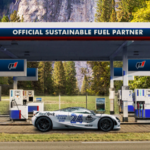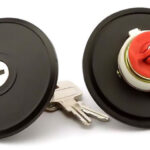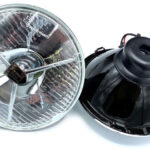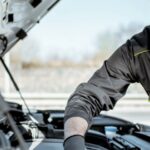A Hagerty UK investigation into the imminent introduction of E10 fuel has highlighted the risks it poses to hundreds of thousands of owners of classic cars, modern cars and motorcycles alike.
Experts warn that the introduction of E10 is the most significant threat to old cars since the switch from leaded to unleaded fuel. Four-star fuel was banned in Britain from 2000, on environmental grounds. It’s for similar concerns over air pollution and CO2 emissions that E10 will soon be dispensed by the nation’s petrol pumps.
What is E10?
Petrol sold in the UK contains up to five percent bioethanol – labelling on unleaded pumps changed to E5 in 2019 to reflect that. From 2021 E10 will become the new standard with up to ten per cent bioethanol in the blend. Produced from crops such as sugar beet bioethanol isn’t a fossil fuel and is renewable.
Why is it being introduced?
Emissions targets. The Government has targeted 2050 as the year that Britain will reduce its greenhouse gas emissions to a net zero. By introducing E10 fuel it is claimed CO2 emissions could be reduced by 750,000 tonnes per year. That’s the equivalent of taking 350,000 cars off the road.
Although many cars run E5 without significant problems, doubling the amount of ethanol in the fuel can cause a variety of issues in older cars. Ethanol is hygroscopic, which means that it absorbs water from the atmosphere. And that water, in turn, finds its way into your car. This can lead to condensation in fuel tanks, fuel lines and carburettors and cause corrosion in brass, copper, lead, tin and zinc components.
As ethanol is also a solvent it can eat through rubber, plastic and fibreglass, so hoses and seals are likely to perish more quickly because of the higher concentration of ethanol in E10.
Department for Transport tests have identified problems including degradation to fuel hoses and seals, blocked fuel filters, damaged fuel pumps, corroded carbs, blocked injectors and corrosion in fuel tanks. Rubber is particularly affected.
In addition, ethanol isn’t as energy dense as petrol which means that the fuel-air mix could be leaner and may increase fuel consumption (in comparison to E5).
The RAC estimates that up to 600,000 cars on the road are not compatible with the new fuel, and it’s not just classics that are affected. Anyone owning a car made before 2002 is advised not to use E10 – and it can affect cars made up until 2011.
What does the fuel industry say?
The Petrol Retailers Association says that there will be an advertising campaign six months before the launch of E10 to advise drivers of the difference between the fuels, and a new website that will allow drivers to check the compatibility of their car with E10 petrol.
Given that the mechanical alterations could run anywhere from hundreds to thousands of pounds, Hagerty is calling for all information campaigns to be brought forward, to allow drivers sufficient time to plan and budget accordingly.
Phil Monger, Technical Director of the Petrol Retailers Association stresses that change won’t be made overnight and believes that many owners of old cars may have already made modifications since the introduction of E5 fuel.
“Vehicles that are very old will have materials that will not be compatible with E5 either. E10 will only hasten the day when it causes you some difficulty with those materials”.
Phil Monger, Technical Director, Petrol Retailers Association
Hagerty asked Guy Lachlan, MD of Classic Oils, to offer some preventative advice…
“You’ve either got to use fuel with no ethanol or change the materials that don’t like it. If you are in any doubt about your rubber fuel lines, change them. Get rid of your fibreglass petrol tank and install an aluminium one. The other thing ethanol really doesn’t like is solder. If you are running a soldered float in your carburettor, then think about carrying a spare – they’re generally quite easy to change”.
Guy Lachlan, Managing Director, Classic Oils
When it comes to storing your car, if it is older than 1996 and doesn’t have a catalytic converter, you can use a lead replacement additive such as Castrol’s Classic Valvemaster which can help prevent corrosion as it also contains an ethanol stabiliser. This product has received endorsement by the Federation of British Historic Vehicle Clubs.
For modern classics there are catalyst-friendly additives available such as Millers Ethanol Protection Additive or Lucas Oil Ethanol Fuel Conditioner, but your best advice is to check with the car manufacturer or relevant owners club.
If you fill up with E10 in error the RAC advises that, unlike putting diesel into a petrol car (or vice versa) you shouldn’t need to drain the tank. It could cause pinking and make it harder to start from cold, but one fill-up shouldn’t cause lasting damage. The advice is to top up with E5 as soon you can – ideally when you’ve used at least a third of the tank – and don’t leave the car in storage until you’ve done so.
The only good news is that super unleaded is set to remain at the E5 standard for five more years after the introduction of E10, according to the PRA. And most E5 currently only actually contains 2-3 per cent ethanol anyway. The bad news is that it costs more – typically 15 pence per litre meaning each time you fill up it could cost you an extra £6.00 – £10.00
Hagerty UK Editor James Mills said “Hagerty represents the community of owners of classic cars, modern classic cars and motorbikes, and calls on the Government and Petrol Retailers Association to accelerate information campaigns for drivers and riders. There may be extensive mechanical modifications required by some models, which can be a costly exercise – during an already challenging economic environment.”
Hagerty UK Managing Director Marcus Atkinson added,
“We do all we can to encourage our clients to get out and drive their classic vehicles as often as possible. I am proud to share the latest information on E10 fuels as, while the news may be unwelcome, raising awareness of the issue will ensure as many classic vehicle owners are as pre-prepared as possible. Hagerty cares about classics, and that care goes beyond providing market leading customer service to our clients. We are here to serve the wider classic car community and will do all we can to ensure classic and historic vehicles can be enjoyed on the public road for many years to come”.
Marcus Atkinson, Managing Director, Hagerty UK
In addition to providing globally leading insurance products, Hagerty International is regarded as one of the world leaders in classic car market analysis and the valuation of classic cars. Regular market reports are published by Hagerty taking data from owners, collectors, car sales and auctions from around the world to give an accurate overview of the classic car market, its stability and value.
Hagerty also offers an extensive event program, including the famous Festival of the Unexceptional, and remains one of the world’s largest classic car content providers through their print, film, digital and social media channels.
The full feature on E10 fuels can be VIEWED HERE









